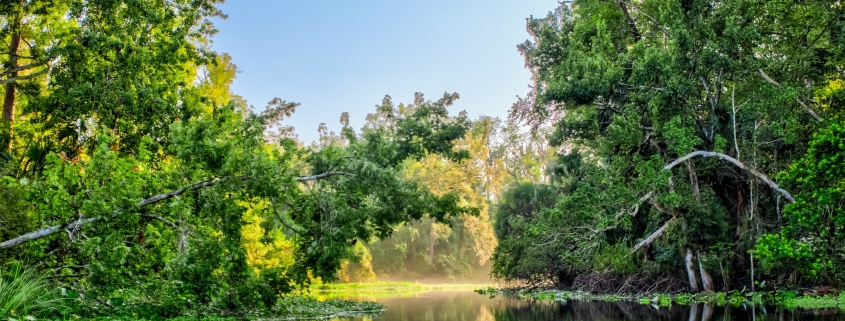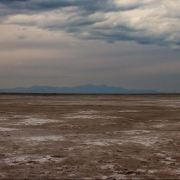2020 Election Recap: Florida County Overwhelmingly Supports Granting Legal Rights to Rivers
Voters approved water-related measures in several states.

The Wekiva River flows through Orange County, Florida. County voters approved a charter amendment to grant the river and other county waterways legal rights. Photo courtesy of Flickr/Creative Commons user rain0975
By Brett Walton, Circle of Blue
Residents of Orange County, Florida, voted overwhelmingly in favor of changing the county charter to give legal protection to rivers.
The result was one of a handful across the country in which voters endorsed new protections for waterways or property taxes that will fund water projects. Voters in Utah and Wyoming also approved constitutional amendments that fix technical matters related to municipal water supply and water infrastructure spending.
The Orange County amendment, which passed with 89 percent of the vote, applies to the Wekiva and Econlockhatchee rivers and other county waterways. It grants the waterways the right to be free from pollution and the right to exist. It allows citizens to file lawsuits on behalf of the waterways to enforce those rights.
The amendment was proposed by the nonprofit environmental group Speak Up Wekiva, but the final language was approved by a county charter review commission.
Chuck O’Neal, president of Speak Up Wekiva, told Circle of Blue before the election that the amendment was necessary because of a legal imbalance between industrial pollution and waterways.
After seeing the election results, O’Neal said that he was elated that Orange County had joined an international movement to recognize the legal rights of nature. Courts in India and Colombia and governments in Ecuador and New Zealand are among those that have recognized such rights.
A similar ballot measure elsewhere, however, has not fared well in court. A Lake Erie bill of rights that Toledo voters approved in 2019 was thrown out by a federal judge for being “unconstitutionally vague.” The Community Environmental Legal Defense Fund, which helped draft the Lake Erie amendment, also assisted in drafting the Orange County amendment.
The Orange County amendment will also face challenges. Gov. Ron DeSantis signed a bill in July that prohibits local governments from recognizing the legal rights of the environment. That provision is being appealed by environmental groups.
In other water-related ballot measures:
- Voters in Utah approved a constitutional amendment that fixes a loophole regarding municipal water supply. Because Amendment D passed with 61 percent, cities now have clear direction about where they can provide water service. They will not be prohibited from supplying water to residents who live outside city limits, securing water for those residents. The bill authorizing the amendment had received unanimous support in the Utah House and Senate.
- There was a narrow, 51-49 margin of victory in Wyoming for Amendment A, which removes the constitutional limit on the amount of debt a municipality can assume for a sewer project. It allows the Legislature to set new debt limits. The amendment was supported by the Wyoming Association of Municipalities, which argued that the change was necessary for investing in infrastructure improvements.
- Residents of Colorado’s 15-county Western Slope region approved a property tax increase that was proposed by the Colorado River District. A public agency that manages the state’s share of the Colorado River, the district expects to raise about $4.9 million a year from the tax. It intends to spend the money on water conservation and efficiency measures, along with ecosystem protection, infrastructure, and agriculture. As of Tuesday night, the measure had received nearly 73 percent of the vote.
- In Santa Clara County, California, preliminary results show that voters have renewed a property tax that funds watershed projects. Measure S had 75 percent support as of Wednesday morning, needing two-thirds majority to pass. The tax, which does not have an expiration date, provides about $45.5 million annually for Santa Clara Valley Water District’s flood protection, wildlife habitat restoration, and pollution prevention. It will also assist with repairs to Anderson Dam, which is at risk of failure in an earthquake.
Brett writes about agriculture, energy, infrastructure, and the politics and economics of water in the United States. He also writes the Federal Water Tap, Circle of Blue’s weekly digest of U.S. government water news. He is the winner of two Society of Environmental Journalists reporting awards, one of the top honors in American environmental journalism: first place for explanatory reporting for a series on septic system pollution in the United States(2016) and third place for beat reporting in a small market (2014). He received the Sierra Club’s Distinguished Service Award in 2018. Brett lives in Seattle, where he hikes the mountains and bakes pies. Contact Brett Walton











Leave a Reply
Want to join the discussion?Feel free to contribute!